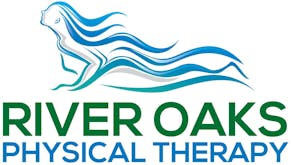Do you ever find it difficult to chew or yawn due to pain, clicking or locking in your jaws?
A common source of many of these symptoms is the TMJ.
The jaw joint, medical condition referred to as the temporomandibular joint or TMJ, is made up of the bone below the mouth (the mandible, commonly referred to as the jawbone) and the bone just above the mouth (the maxilla). The lower jaw and is one of the most frequently used joints of the body.
Temporomandibular joint (TMJ) dysfunction affects more women than men and though generally affects people between the ages of 20 and 40; women especially between 18-44 years of age have the biggest increased risk of TMJ.
Risk factors include people who have a history of clenching and grinding their teeth (bruxism), dental work, trauma to the jaw or face, increased anxiety or stress, or poor posture.
Causes of temporomandibular joint (TMJ) syndrome include injury to the teeth or jaw, misalignment of the teeth or jaw, teeth grinding, stress, arthritis, and gum chewing.
Some kinds of arthritis, often osteoarthritis, can affect the TMJ and lead to pain when moving the joint.
“Researchers have estimated that 65%–85% of Americans experience some symptoms of temporomandibular joint dysfunction (TMD)”
Signs and symptoms of TMJ disorder:
Psycho social factors - Emotional stress (anxiety, depression, anger)
Facial pain, jaw pain tenderness of your jaw.
Pain in one or both of the temporomandibular joints.
Aching pain in and around your ear.
Difficulty chewing or pain while chewing
Other Symptoms can include neck pain and joint pain
Help yourself with these TMJ pain relief tips:
- Keep your face relaxed with your lips together and teeth apart.
- Jaw Exercises
- Massage your jaw, cheeks, and temples regularly.
- Avoid grinding or clenching your teeth, and minimize chewy or hard foods in your diet and how often you chew gum.
- Non-steroidal anti-inflammatory drugs (NSAIDs), such as ibuprofen (Advil, Motrin IB, others),
Physical therapists and physical therapy help people with TMD ease pain, regain normal jaw movement, and lessen daily stress on the jaw. We can discuss possible causes and treatments of your problem.
Q&A:
Q: Can TMJ be cured?
A: TMJ May Not be Curable, But it's Treatable. treatments that can reduce your discomfort, lessen your symptoms, and help prevent worsening damage and pain.
Q: Does TMJ hurt?
A: It hurts over the joint, immediately in front of the ear, but pain can also radiate elsewhere.
Q: Can a Physical therapist help?
A: Physical therapists help people with TMD ease pain, regain normal jaw movement, and lessen daily stress on the jaw
References
US National Library of Medicine National Institutes of Health

